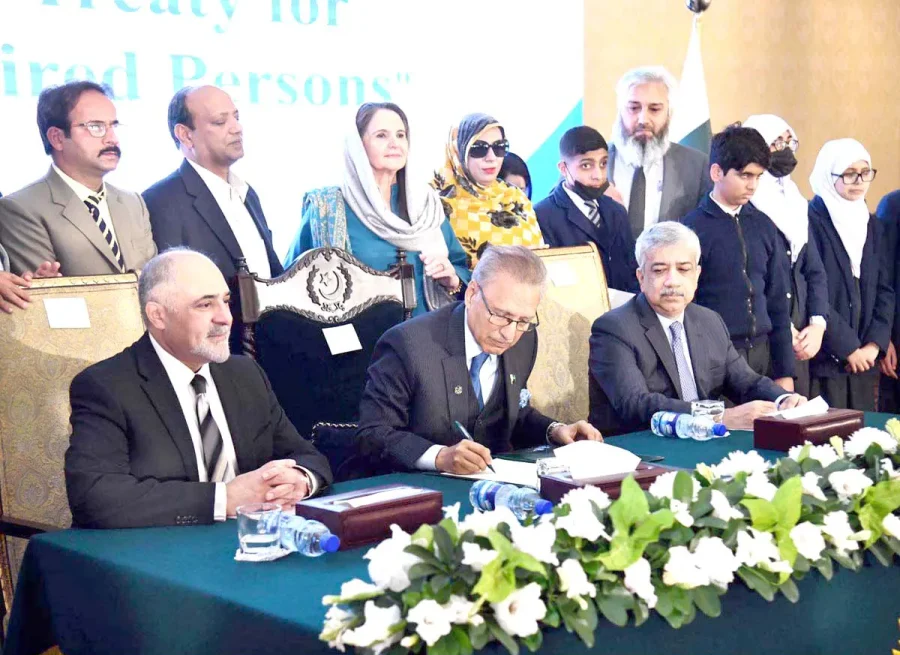Pakistan on Tuesday became the signatory to the Marrakesh Treaty aimed at providing access to published work for visually impaired persons.
President Dr Arif Alvi inked the instrument of accession to the World Intellectual Property Organization’s (WIPO) administered Marrakesh Treaty, at a special ceremony held here at the Aiwan-e-Sadr.
The Marrakesh Treaty aims to help the visually impaired or otherwise print-disabled people have access to books and literary works in accessible formats.
Signed in Morocco on June 27, 2013, and joined by a large number of countries in the world, the Treaty enables the reproduction of published materials into accessible formats, such as braille, large print, and audio editions.
By acceding to the Treaty, Pakistan has become able to provide its estimated 10 million visually impaired persons easy access to published work. The facility otherwise has been restricted due to the Copyright Ordinance of 1962 which does not provide necessary provisions for compulsory printing and reproduction of braille and audio versions.
President Alvi termed the accession to the Marrakesh Treaty a “great moment of pride” and said Pakistan had embarked upon a new pathway to empower its visually impaired people.
He said the Marrakesh Treaty would act as an equalizer of opportunity to provide visually challenged persons equitable access.
“The Treaty will create an environment of learning and equal opportunity for educating the neglected class of the society,” he said.
He said it was the responsibility of the State to accommodate its differently-abled citizens by providing them equal opportunities in all fields of life, particularly education and employment. The president said access to published work would open new vistas of opportunities for visually impaired persons and dispel the impression that disability should be a hurdle in personal empowerment.
The positive flow-on effects, he said, include improved access to education and employment, and also better well-being of the visually impaired persons.
President Alvi stressed the need to shun the taboo about persons with disabilities and ensure their inclusion in the mainstream life system.
“Accommodating such people does not tantamount to any favour, but it is their due right which the society owes to them,” he said.
Pakistan, he said, made “tremendous success” in recent times by stepping up efforts to shun taboos about the differently-abled persons.










